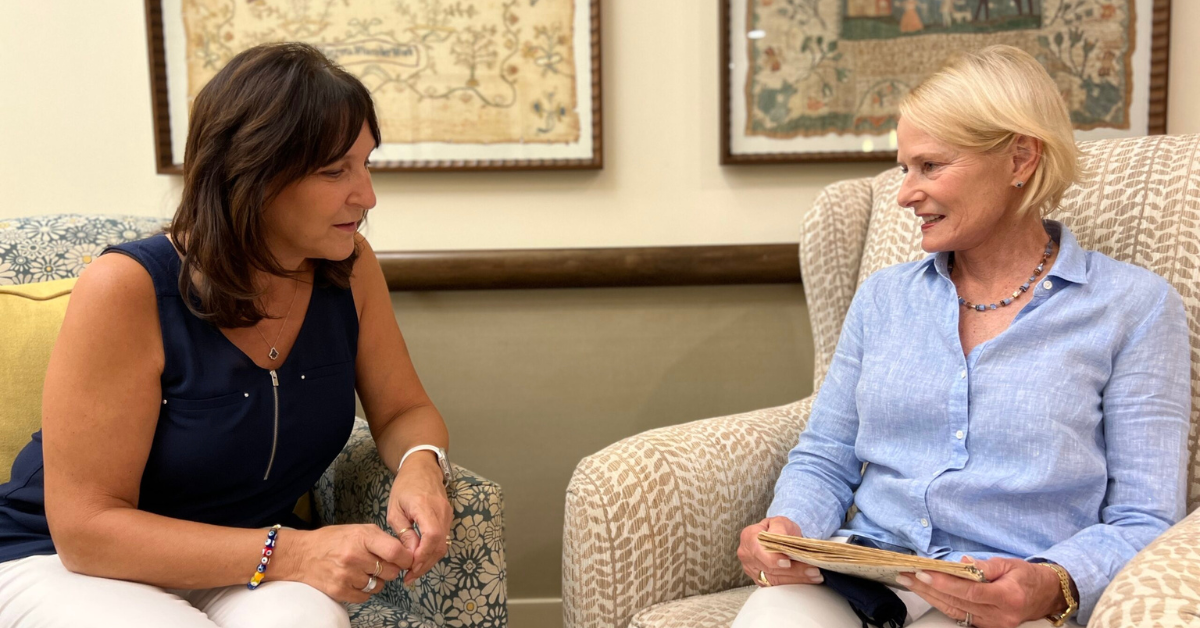In my role at Abe’s Garden Community, I counsel families looking for support in caring for their family members living with Alzheimer’s disease or other dementias. As they describe their situation, families frequently say they want to keep their loved one living at home as long as possible. This sentiment reflects many factors weighing heavily on the family caregiver:
- A sense that moving them to a community is a personal failure and that they are “giving up” on their loved one
- A belief that they should be able to manage their loved one’s disease themselves
- A desire to honor their loved one’s wishes to never “put me in a nursing home.”
- Concerns about saving their financial resources
- And finally, “We’re not at that point.”
This is not a complete list of what I hear, but it certainly touches on the most common shared thoughts. And while all of these are valid, there are times when these reasons are not the only points to consider when determining if the time is right for a move. In fact, these concerns could lead a family to wait too long or miss out on opportunities for an enhanced quality of life for both the caregiver and their loved one. There is no universal “right time to move” and each family must weigh the pros and cons of their situation.
I would like to offer another perspective on these beliefs.
I’d Be Giving Up on My Loved One
Moving your loved one into the right community, one in which engagement creates the daily routine, where they are supported in the areas they struggle with, while being granted freedom over what they can still do, is giving them a gift! At Abe’s Garden, there is no abdication of your role as MVP in your loved one’s life! This is NOT “giving up” on them, rather a move to give them a more fulfilling and purposeful quality of life than you can create at home.
I Should Be Able to Manage This
In one of our Zoom Support Groups, a family member suggested “we stop ‘shoulding’ on ourselves!” We all laughed at this but then discovered all the things we tell ourselves we should be able to do. “Maintain the house, pay the bills, make and keep all the appointments, do the laundry, prepare the meals, manage the medications, all the caregiving task, oh and keep our loved ones engaged and entertained all day!” This clearly leaves little to no time for self-care. Most of our families realize that this is not sustainable long-term. Dementia is a disease that has a very lengthy journey.
Honor Your Loved One’s Wishes
Many families experience guilt when deciding to relocate their loved-one. Promises may have been made at some point to keep them home forever or “as long as possible.” This is understandable given that historically, nursing homes conjured up images of patients sitting in wheelchairs, unattended and alone. So, when the promise to avoid “places like that” were made, none of us knew about the options that are available today. We also couldn’t have foreseen the impact of the caregiver burden you carry. Most of us would not want this life for themselves or for you. When you make informed decisions to improve the quality of life for you and your loved one, you are truly living up to your promise to care for them always.
Saving Financial Resources
None of us knows how long we will live or if our savings will cover these costs through the end of life. It is vitally important to be good stewards of these resources. It is equally important to use these resources to address the greatest needs at the current time. The best time to move into a community such as Abe’s Garden is when your loved one can benefit from the engagement, socialization, cognitive stimulation and purpose-built environment. The cost of care will change throughout the course of the illness.
We’re Not at That Point!
Abe’s Garden Community encourages families to create a plan well before they need one. For this reason, planning sessions are offered to families who are already on our waitlist. In these sessions, we engage families with questions designed to explore their beliefs and wishes for their loved ones, their families, and themselves. We also determine their thresholds within the various domains when considering staying home versus moving into our community. With our individualized care and engagement, our residents, particularly in the early stages, can benefit from residential services and have a better quality of life.

